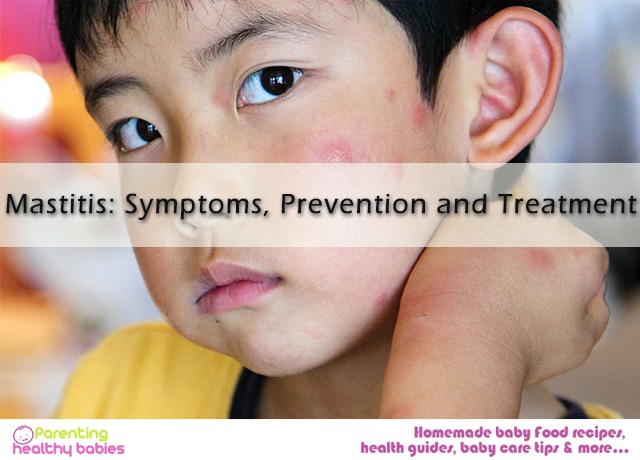Food Protein-Induced Enterocolitis Syndrome (FPIES) is a rare but serious type of food allergy that primarily affects infants and young children. It is characterized by severe gastrointestinal symptoms that can be challenging to diagnose and manage. In this article, we will explore the symptoms, causes, risks, and treatment options for FPIES in babies to help parents and caregivers better understand this condition.
In This Article:
- How Common Is FPIES?
- Symptoms of FPIES in Babies
- Causes of FPIES in Babies
- Risks Associated with FPIES in Babies
- Which Foods Can Trigger FPIES in Babies?
- How Is FPIES Diagnosed?
- Treatment of FPIES in Babies
- What Is the Outlook for a Child with FPIES?
- When to See a Doctor for FPIES in Babies?
How Common Is FPIES?
FPIES is considered a rare food allergy, affecting an estimated 0.5% to 1% of infants and young children. Despite its rarity, FPIES can have significant implications for affected individuals and their families due to the severity of symptoms and potential complications.
Symptoms of FPIES in Babies
FPIES typically presents with symptoms that are primarily gastrointestinal in nature and can be quite severe. The most common symptoms of FPIES in babies include profuse vomiting, diarrhea, abdominal pain, and lethargy. Unlike other food allergies that involve immediate reactions such as hives or anaphylaxis, FPIES symptoms usually occur a few hours after ingesting the trigger food.
In severe cases, infants with FPIES may also experience dehydration, low blood pressure, and poor weight gain. These symptoms can be frightening for parents and caregivers, leading to a delay in diagnosis due to the condition’s rarity and atypical presentation.
Causes of FPIES in Babies
FPIES is triggered by the ingestion of specific food proteins, most commonly cow’s milk and soy. However, any food can potentially cause an FPIES reaction, including grains, vegetables, and even breast milk if the mother consumes a trigger food. The exact mechanism behind FPIES is not fully understood, but it is believed to involve a delayed hypersensitivity reaction in the gastrointestinal tract.
Unlike immediate-type food allergies that involve the immune system’s IgE antibodies, FPIES is considered a non-IgE mediated food allergy. This delayed reaction in the gut leads to inflammation and the release of inflammatory mediators, resulting in the classic symptoms of FPIES.
Risks Associated with FPIES in Babies
FPIES can pose significant risks to infants, particularly if not promptly diagnosed and managed. Severe vomiting and diarrhea can lead to dehydration and electrolyte imbalance, which can be life-threatening if left untreated. Prolonged exposure to trigger foods can also result in poor growth and development, as affected infants may struggle to maintain adequate nutrition due to their gastrointestinal symptoms.
Furthermore, FPIES can have a significant impact on the emotional and psychological well-being of both infants and their caregivers. Constant worry about potential trigger foods and the fear of a reaction can be overwhelming, affecting the quality of life for the entire family.
Which Foods Can Trigger FPIES in Babies?
Common trigger foods for FPIES in babies include cow’s milk, soy, grains (e.g., rice, oats), egg, poultry, and fish. However, any food can potentially trigger an FPIES reaction. It is essential for parents to work closely with healthcare providers to identify specific trigger foods through an elimination diet and food challenges.
How Is FPIES Diagnosed?
Diagnosing FPIES in babies can be challenging due to the delayed nature of the symptoms and the need for clinical judgment. Healthcare providers typically rely on a combination of clinical history, physical examination, and diagnostic tests such as skin prick testing, blood tests, and oral food challenges to confirm an FPIES diagnosis.
Treatment of FPIES in Babies
The cornerstone of managing FPIES in babies is strict avoidance of trigger foods. Once a diagnosis is made based on a thorough clinical history and elimination diet, parents and caregivers must meticulously read food labels and avoid cross-contamination to prevent accidental exposures. In cases where breastfeeding is the primary source of nutrition, the mother may need to eliminate trigger foods from her diet to prevent FPIES reactions in the infant.
In acute FPIES episodes, it is essential to provide supportive care to manage symptoms such as dehydration and electrolyte imbalance. This may involve intravenous fluids and close monitoring in a healthcare setting. In some cases, healthcare providers may prescribe medications to help manage symptoms, but these are typically used on a case-by-case basis and should be closely monitored by a healthcare professional.
Long-term management of FPIES involves ongoing monitoring of the infant’s growth and development to ensure adequate nutrition. Nutritional supplements or specialized formulas may be recommended to support growth in infants with multiple trigger foods or severe reactions. Regular follow-up with an allergist or gastroenterologist is essential to track progress and adjust management strategies as needed.
What Is the Outlook for a Child with FPIES?
With proper management and avoidance of trigger foods, most children with FPIES can lead healthy lives. As children grow older, some may outgrow FPIES to certain foods, while others may continue to have FPIES into adulthood. Regular monitoring and follow-up with healthcare providers are important to adjust treatment strategies as needed.
When to See a Doctor for FPIES in Babies?
Parents should seek medical attention if their baby shows symptoms of FPIES, such as severe vomiting, diarrhea, abdominal pain, and lethargy after ingestion of a specific food. Prompt evaluation and diagnosis by a healthcare provider, typically an allergist or gastroenterologist, are crucial for effective management of FPIES in babies.
Conclusion
FPIES is a rare but serious condition that can pose significant challenges for infants and their caregivers. Understanding the symptoms, causes, risks, and treatment options for FPIES is crucial for early diagnosis and effective management. By working closely with healthcare providers and following a strict avoidance plan, parents can help their infants thrive despite this challenging condition. Ongoing research into FPIES is essential to improve diagnosis and treatment outcomes for affected babies in the future.
Sources:
- https://www.healthline.com/health/allergies/fpies-in-babies
- https://www.medicalnewstoday.com/articles/323794













